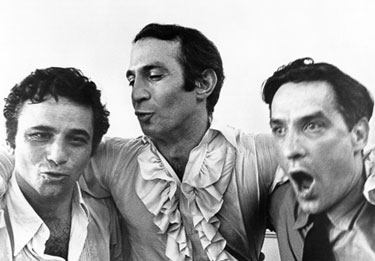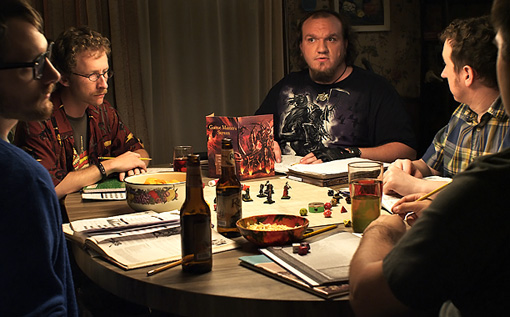Written by Wong Kar-Wai
Directed by Wong Kar-Wai
Hong Kong and China, 2013
It’s almost impossible to consider the U.S. cut of The Grandmaster without wondering what’s been lost, to the point of regretting that either Harvey Weinstein or director Wong Kar-Wai (depending on which story you read) doesn’t trust American audiences to pick up on simple nuances, character titles and motivations, and historical context. One character, late in the film, discusses the idea of regrets, and that life wouldn’t be worth living without harboring a few. Perhaps, then, it’s fitting that The Grandmaster, or the shortened version being released this weekend in North America, may be a beautiful elegy to the past that never stops letting its audience know that a fuller cut exists, giving them their own regret to harbor.
Based on a true story, The Grandmaster focuses on Ip Man (Tony Leung), a martial arts master from the southern part of China, which is fiercely divided with the North, where martial arts of all kinds prosper. In 1936, Ip Man is chosen as the heir in the South to the current Grandmaster, who believes that acknowledging the various, perhaps rougher, martial arts leaders outside of the North is wise. Ip Man’s journey isn’t simple; once he’s inducted as the heir, the Grandmaster’s daughter (Zhang Ziyi) refuses to let him gain this title without proving himself to her; of course, they quickly become enamored with each other, with the romantic backdrop being the Second Sino-Japanese War. In essence, The Grandmaster builds the legend that Ip Man became, displaying from the first scene his intense but calm prowess and handle of the art of Wing Chun, which dazzled so many who took him on.
Maybe the original version of The Grandmaster cannot solve some of the problems on display in the cut being distributed by The Weinstein Company. But it’s hard not to wish that there was only the 130-minute version of the film, not a 130-minute version and this 108-minute cut, which feels as though it’s being diced and spliced on the spot. Sometimes, this version is reminiscent of a documentary that shows and tells in the same breath; sometimes, it’s like watching a silent movie, with title cards shoved in the middle of action. Either way (and no matter who’s responsible, as Wong has claimed he chose to recut the film and include voiceover narration from Leung and Zhang), this is hand-holding that becomes so pointless that it’s nearly condescending.
When Ip Man, for example, meets a fellow Southern master of martial arts, there to test him before facing off against the Grandmaster, said Southern master is introduced via dialogue, both in name and trade. But right before that dialogue, a subtitle appears on screen, describing this person’s name and their trade. Americans are, by and large, not so stupid that they need to be told twice in under 30 seconds these basic facts. More to the point, the character in question appears in just that scene; why is it so important to hammer home this minute detail?
The intertitles and subtitles are most vexing because the movie surrounding them is frequently exciting and stylish without ever being too self-consciously arty. Wong, best known for bittersweet dramas like Chungking Express and In The Mood For Love, not only delivers a handful of stunning and tense martial-arts sequences—the first hour is overloaded with them—but wrings genuine emotion in his portrayal of a past populated by those who wish they could stop the neverending march of time. Ip Man and Zhang’s character, Gong Er, both respect the past and realize that the more modern their world gets, the easier it is to feel lost within it. Ip Man is able, because he’s a man of great and immense skill, to adapt. Gong Er is less fortunate; an extended flashback sequence documenting her travels is the high point of The Grandmaster. Zhang is so astonishing a performer that Ip Man’s absence in this 20-minute interlude is never felt. The story no longer is his alone; they share it, and share it strongly.
The Grandmaster is an impressive feat of action filmmaking, a dexterous, deft, yet painful tale of one man’s journey into myth. That Wong Kar-Wai continues to be one of the great cinematic stylists is not a surprise. Still, the way he stages and shoots the fight sequences stands out from other colorful Asian directors like Zhang Yimou. (Wong’s focus on the martial artists’ hands in the midst of a fight is especially striking.) When the movie trusts the audience enough to tell the story of two connected figures moving through the modern age, The Grandmaster is emotional and thrilling. Unfortunately, every time the film takes a pause to walk its audience through history, it feels less like a master storyteller weaving a breathless new tale, and more like an underprepared college student reading off a Wikipedia page for a presentation.
— Josh Spiegel








